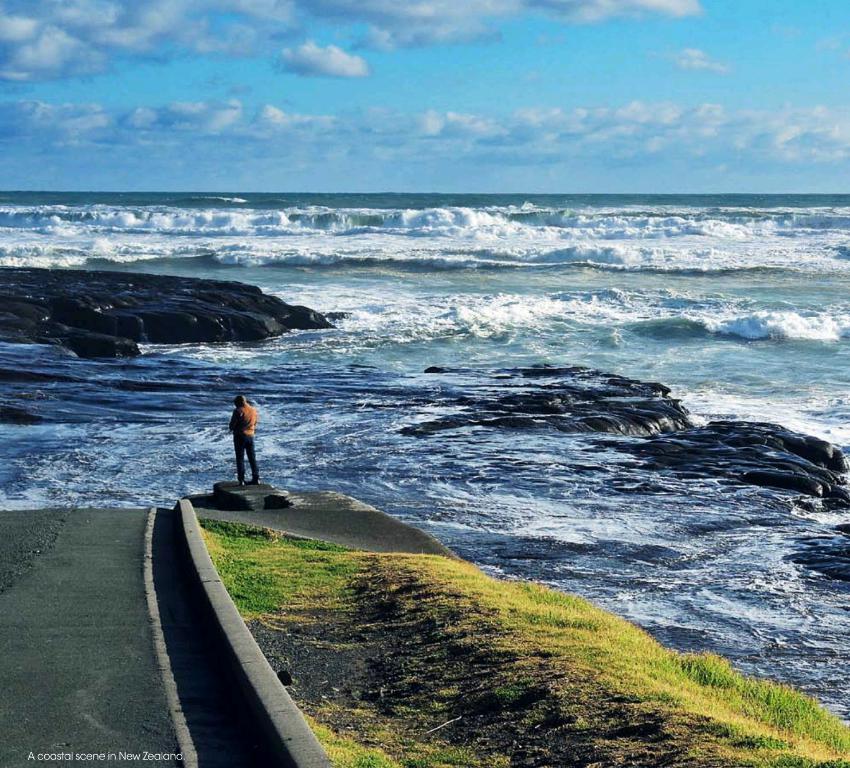Impressions of New Zealand
2014-11-24byChuJiwang
by+Chu+Jiwang

After visiting several European countries, such as Britain, Ireland, Norway, and Iceland, I paid a visit to Auckland, the largest city in New Zealand, this July. I was part of a delegation from the municipal government of Ningbo, my hometown.
Auckland has joined hands with Ningbo to become sister cities. After two days of conducting business, I found time to experience the city.
Auckland is known as a city of sailboats, and I indeed saw many docked in the bay. I was deeply impressed by what I saw: clean, shining boats, blue ocean, white sails, and seagulls hovering over the water. Particularly striking is the black sand beach, dubbed by National Geographic as one of the most amazing 30 vistas on earth. The beach is covered with nothing but black sand – remains of a volcanic eruption.
Downtown Auckland has hardly any skyscrapers, and its symbolic structure is a TV tower rising above the trees. Suburban Auckland is a world of pastures – a wonderful home for cows and sheep. I will never forget a scene of sheep scattered across gentle, green slopes, bathing in the sunlight. I didnt see any villages on the vast expanses of pastures.
During my stay, I couldnt help but ask myself, “What can we learn from this country?”
New Zealand has a small population, but vast land and rich natural resources. China, conversely, has a huge population, yet disproportionate land and resources. Economic development inevitably damages the living environment, which in turn results in environmental problems.
In my home province, Zhejiang, for instance, the government has launched campaigns to tackle water issues, including sewage treatment, flood prevention and control, flood drainage, and water supply and conservation, hoping to restore the regions beautiful waterfront scenery. Nevertheless, environmental management is a massive, daunting task that can never be accomplished overnight.
I naturally pondered a few things that could help.
First, China should slow its real estate development and minimize construction of skyscrapers. Housing prices have skyrocketed – too expensive for normal folks.
Second, the country should stop overemphasizing its GDP growth percentage, which has led to excessive industrial development producing massive surpluses, polluting the environment, and exhausting natural resources. The government should let go of enterprises struggling to survive, so as to better help the healthy ones grow. Enterprises plagued with problems must teach themselves to survive on the edge, or be eliminated.
Third, the government should pay more attention to education, starting in elementary schools, and place more emphasis on the realms of morality, patriotism, and even national defense.
Finally, China should focus on tertiary industries, tourism in particular. It goes without saying that China has been bestowed some of the richest tourism resources on the planet: ancient civilization, long history, and profound, brilliant culture. But tourism cannot flourish with focus only on big metropolises, such as Beijing, Shanghai, Xian, and Hangzhou. More destinations in rural China should target travelers as part of the economic restructuring of the country.
